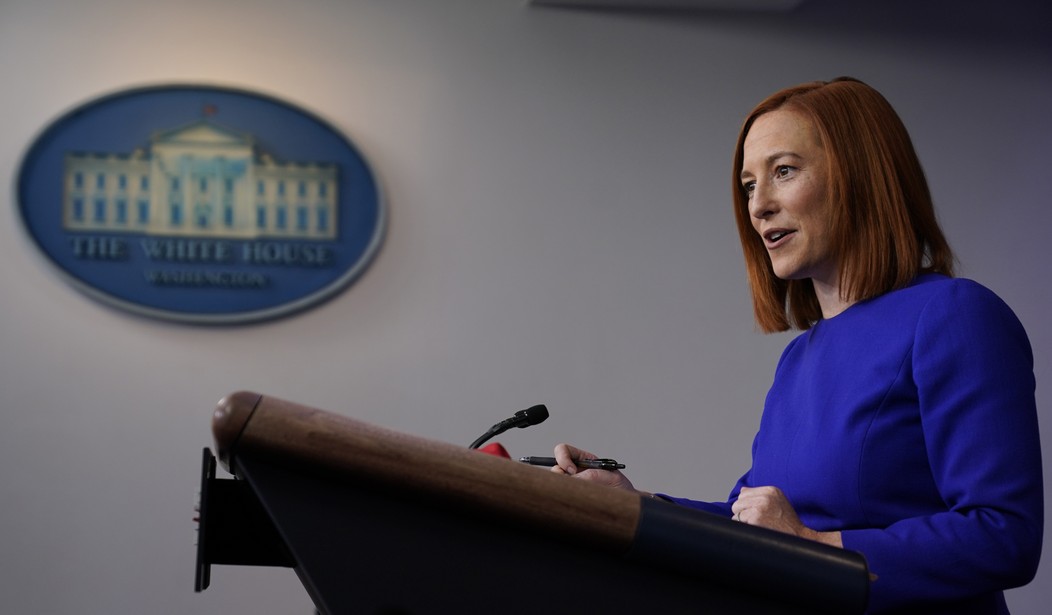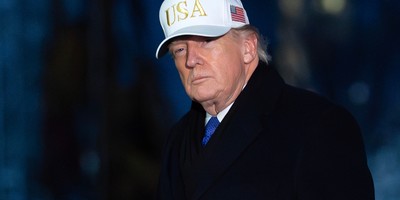On cue, White House press secretary Jen Psaki has signaled that President Joe Biden's administration is not prepared to seriously confront the complex and immediate threat communist China poses to American security and world peace.
Earlier this month, incoming secretary of state Antony Blinken acknowledged communist China presents a formidable problem and added former President Donald Trump's administration "was right in taking a tougher approach to China." The tough approach was "helpful" to U.S. foreign policy.
For a Blinken moment, it looked as if the Biden administration might get China right, too.
But in her Jan. 25 press briefing, Psaki soft-pedaled. The new administration, she said, starts "from an approach of patience as it relates to our relationship with China." She then unloaded a dictionary's worth of Beltway jargon, promising consultations galore and an "interagency process" review "in order to take a multilateral approach to engaging with China."
Psaki's telltale word is "patience." Strategic patience -- the diplomatic term -- quickly becomes strategic negligence and potentially submissive appeasement. At best, strategic patience is a reactive response.
Patience plays into Beijing's hands. China's territorial aggression in the South China Sea is a fact. Beijing exploited 25 years of American patience to expand.
China's pervasive and interconnected covert campaign of military and industrial espionage, intellectual property theft, unfair trade practices and political infiltration (often lubricated with economic bribes) is an immediate threat that exploits patience.
China's American spy operation has no historical precedent. For almost two decades, Sen. Dianne Feinstein employed a Chinese intelligence source in her San Francisco-area office. For several years, Rep. Eric Swalwell, D-Calif., had very close ties to alleged Chinese operative Christine Fang. Both Feinstein and Swalwell serve on congressional intelligence committees.
Recommended
In 2015, Chinese cyber-spies penetrated the U.S. Office of Personnel Management and acquired personal information on 20 million government workers, to include military personnel. American military personnel later received letters confirming hackers had acquired their detailed personnel files, to include background investigations for security clearances.
StrategyPage.com observed, "Since the CIA recruits many ... field agents from former ... Special Operations Command personnel, many key CIA people were now much less secret."
China's OPM "identify theft" attack harmed American intelligence operations, perhaps for a decade.
The administration of then-President Obama reacted to the attack with strategic patience.
Patience fails to confront the Chinese Communist Party's primary diplomatic and gray-area warfare doctrine: a triad of intimidation, retaliation and retribution directed at nations, organizations and individuals with the courage to confront CCP aggression and malign activities.
At the moment, Beijing's most overt acts of intimidation are its military probes of Taiwan. On Jan. 23, at least 12 Chinese aircraft (a mix of fighters and bombers) entered Taiwan's air defense identification zone. On Jan. 24, 15 Chinese air force planes intruded.
China conducted military shows of force -- demonstrations to test Taiwan's defenses but also gauge U.S. military and diplomatic reactions. China's target: the Biden administration.
Japan confronts routine Chinese air and sea space incursions. China claims Japan's Senkakus Islands, which are located in the East China Sea. In a phone call with Japan's defense minister, Biden's new secretary of defense, Lloyd Austin, reaffirmed the U.S. commitment to help Japan defend its islands, to include the Senkakus.
That's good. Now President Biden should make the same public commitment -- on global television. He should also affirm America's commitment to defend critical Asian allies and mention Japan, South Korea, Australia and Singapore.
Words, however, must be backed by deeds.
Biden must demonstrate proactive impatience, like opening U.S. courts to U.S. corporations and individuals who have suffered economic loss from illegal activities by Chinese government and corporate entities.
Another proactive deed: Continue the Trump administration's "Clean Network" initiative, implemented to secure America's communication and energy grids by banning suspect Chinese equipment, like that manufactured by Huawei.
The most proactive deed: Recognize Taiwan as the free and independent nation it is.

























Join the conversation as a VIP Member